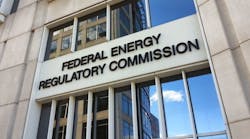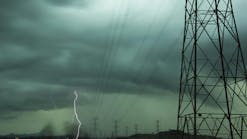FERC Eases Regulations During COVID-19 Crisis
The Federal Energy Regulatory Commission has taken a series of actions over the past month to ease the regulatory burdens on the energy industry during the COVID-19 pandemic. Beginning in March, the commission moved most FERC employees to telework status and moved technical conferences and settlement conferences to videoconference.
The commission reassured the regulated community that the agency is still fully functioning via the telework process and expects to continue to be able to complete its work considering matters and issuing orders on a timely basis.
FERC has repeatedly reassured regulated entities that it will not second-guess the good faith actions of regulated entities responding to the crisis. In a policy statement issued on April 2, the commission committed to “expeditiously review[ing] and act[ing] on requests for relief, including but not limited to, requests for cost recovery necessary to assure business continuity of the regulated entities’ energy infrastructure in response to the national emergency.” FERC has been communicating with NERC and the ISOs and RTOs and does not expect the crisis to impact the reliability of the bulk electric system.
In an effort to ease regulatory burdens, the commission granted an extension until May 1, 2020, for a broad range of non-statutory filings due on or before May 1 including: compliance filings; responses to deficiency letters; rulemaking comments; most forms required by the commission; filings required by entities’ tariffs or rate schedules; answers to complaints and orders to show cause; initial and reply briefs in paper hearings before the commission; interventions, protests, or comments to complaints; and briefs on and opposing exceptions to an initial decision.
For several discrete categories of documents, the commission granted a further extension until June 1, 2020, including first quarter electronic quarterly reports and FERC Form Nos. 60, 61, and 552. Deadlines for RTO/ISO Uplift Reports and Operator Initiated Commitment Reports due between April and September were also extended until October 20, 2020.
FERC has also granted waivers of certain requirements that conflict with social distancing guidelines, including requirements for in-person meetings and notarized documents. In addition, the commission has exercised its enforcement discretion to take the pandemic into account when evaluating compliance and enforcement matters. In particular, the commission has suspended new audits until July 31, postponed active audit visits and investigative testimony, and postponed surveillance inquiries that do not involve conduct that poses a significant risk of harm to the market. FERC has also permitted entities to delay the submission of self-reports for up to 60 days.
Finally, FERC has encouraged regulated entities to proactively inform the commission of crisis-related issues and requests. The commission has repeatedly stressed that it aims to be flexible and responsive during this time and has offered regulated entities multiple procedural paths to obtain guidance and relief. First, entities may formally seek extensions and waivers of commission orders, regulations, tariffs and rate schedules, as appropriate.
FERC has delegated authority to the director of the Office of Energy Market Regulation to take action on certain uncontested requests for prospective waivers of regulatory requirements to address responses to COVID-19. Second, the commission has created two task forces to issue formal enforcement or compliance-related guidance in the form of standards of conduct waivers and no-action letters. Third, the commission has created a COVID-19 point of contact, Caroline Wozniak, and email, [email protected], for informal industry inquiries.
FERC’s actions to date have primarily focused on easing regulatory burdens on the energy industry. While this provides some relief to regulated entities, negative impacts from the COVID-19 crisis are more likely to come from the financial or commercial sector, which FERC has limited ability to influence. For renewables developers, construction of new facilities has been interrupted, capital investment is harder to come by, and the value of investment tax credits is diminished at least as long as the earnings are down.
These factors are further complicated by the recent collapse of oil prices—against which the cost of renewables compete—creating additional economic pressure. Outside of FERC’s industry-wide efforts, some RTOs and ISOs have considered extending interconnection milestones and deadlines, but developers have not uniformly supported those kinds of extensions because they delay study schedules. On the utility side, FERC has urged states to designate utility workers as essential and has sent a joint letter with the National Association of Regulatory Utility Commissioners requesting that the Federal Reserve extend access to short-term debt financing for electric, natural gas, and water utilities.
Authors: Jessica Bayles is an associate in Stoel Rives LLP's Energy Development group, where she focuses her practice on energy regulatory controversies, compliance counseling, and regulatory support for renewable project development and transactions.
Jason Johns is a partner at Stoel Rives where he advises independent power producers, utilities, investors, and large users of gas and power resources with matters arising in power markets and state and federal energy regulatory arenas.
Richard Bonnifield is a partner at Stoel Rives where he focuses his practice on energy law, including electricity, natural gas and renewable energy matters and provides strategic legal and regulatory advice on rates, corporate structure, transactions, tariffs and reliability matters.


